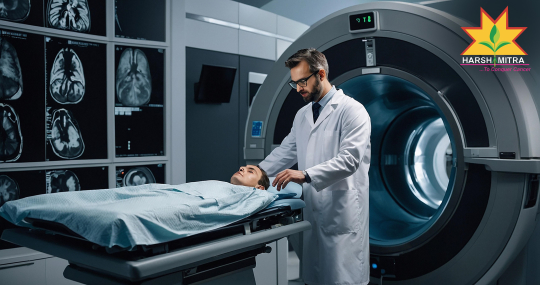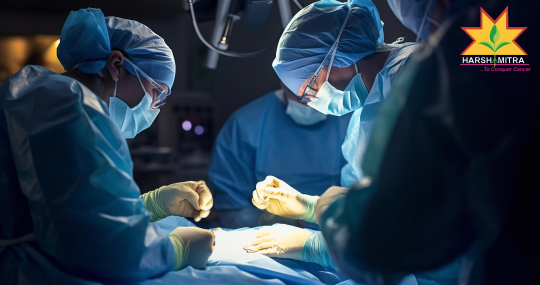Cancer is a group of diseases where abnormal cells grow rapidly and can spread to other tissues and organs, often forming tumors and disrupting normal body functions. It is a leading cause of death worldwide, responsible for nearly 1 in 6 deaths in 2020, according to the World Health Organization (WHO). Ongoing research continues to explore new and improved cancer treatments.
Liver cancer
Liver cancer is a type of cancer that starts in the liver, the body’s largest internal organ responsible for filtering waste, absorbing nutrients, and aiding in healing. It can be classified as primary (originating in the liver) or secondary (spreading to the liver from other organs). Treatment options depend on factors like the size, number, and location of tumors, liver function, the presence of cirrhosis, and whether the cancer has spread to other parts of the body.


Stomach cancer
Stomach cancer, or gastric cancer, occurs when abnormal cells grow uncontrollably in the stomach, often starting in the stomach lining. If untreated, it can form a tumor that spreads to nearby organs like the liver or pancreas. While anyone can develop stomach cancer, the risk is higher in individuals aged 65 and older, those assigned male at birth, and people of East Asian, South or Central American, or Eastern European descent. Treatment options include surgery, chemotherapy, radiation therapy, targeted therapy, or a combination, depending on the cancer’s stage and overall health.
Blood cancer
Blood cancer affects how blood cells are made and function, often starting in the bone marrow, where blood cells are produced. It occurs when abnormal cells disrupt the production of healthy cells, leading to complications. Treatments vary depending on the type of blood cancer, age, health, and side effects. Common options include chemotherapy to kill cancer cells, radiation therapy to target abnormal cells, immunotherapy to boost the immune system, and targeted therapy to address genetic mutations. Advanced treatments like CAR T-cell therapy, autologous stem cell transplants, and allogeneic stem cell transplants are also used in specific cases, offering new hope for managing blood cancer.


Pancreatic cancer
Pancreatic cancer occurs when cancerous cells develop in the pancreas, a gland behind the stomach that produces digestive juices and hormones to regulate blood sugar. Most pancreatic cancers start in the cells that produce digestive juices. Treatment options include surgery to remove tumors or manage symptoms, chemotherapy to target cancer cells with drugs, and radiation therapy to destroy cancer cells using high-energy rays.
Skin cancer
Skin cancer is the most common type of cancer, occurring when skin cells grow abnormally. It can sometimes spread to other parts of the body. Treatment depends on factors like the cancer’s size, location, type, and stage. Options include freezing the growth with liquid nitrogen (cryosurgery), removing it surgically (excisional or Mohs surgery), scraping and burning the cells (curettage and electrodesiccation), or using therapies like chemotherapy, radiation, photodynamic therapy, biological therapy, or immunotherapy to target and destroy cancer cells.


Throat cancer
Throat cancer is a type of cancer that forms in the throat (pharynx) or voice box (larynx) and may significantly interfere with functions like speaking and swallowing. Treatment involves surgery, radiation therapy, chemotherapy, immunotherapy, and targeted therapy. Depending on the nature, stage, and location of the cancer, treatment is appropriately applied. In addition, one is encouraged to seek specialized treatment at throat cancer treatment centers or throat cancer hospitals.
Throat cancer is one of the prominent health problems in India, where thousands of new cases are diagnosed every year. The prevalence is mainly due to various risk factors such as tobacco, alcohol, and HPV infection. Early detection, therefore, would result in better treatment outcomes because of awareness and easier access to good quality health care services at all throat cancer treatment centers and throat cancer hospitals in the country.
Book an Appointment
Seeking an expert consultation, Cancer Screenings, Conservative Surgeries, a second opinion, or immediate treatment, our state-of-the-art facility is ready to support you at every stage of your cancer journey. We prioritize your health and comfort, making the appointment process quick and easy. Take the first step towards specialized cancer care today.
What you can expect from us:
Expert Cancer Care : Specialized in all forms of cancer treatment, including curative, preventive, and palliative oncology Advanced Technology : Featuring cutting-edge therapies like Linear Accelerator Radiation (LINAC) and 24-channel Brachytherap Personalized Treatment Plans : Tailored to meet the unique needs of each patient, ensuring holistic care.
Cancer is a group of serious diseases caused by genetic changes in cells, leading to abnormal cell growth and tumor formation. Factors like smoking, alcohol use, poor diet, lack of exercise, high BMI, and certain infections can increase the risk of cancer. Early detection through screenings can improve treatment success and reduce mortality. Treatment and outcomes depend on the cancer type, stage, age, and overall health of the individual.
Testimonials
Frequently Asked Questions
We strive to make cancer treatment accessible to all. Harshamitra offers a range of payment options, insurance support, and, in some cases, financial assistance for eligible patients. We also work with government health schemes and non-profit organizations to provide affordable care.
Common side effects of chemotherapy include nausea, fatigue, hair loss, and weakened immune function. Our team provides comprehensive care to manage these side effects, including medications, nutritional support, and lifestyle guidance to help patients cope during treatment.
The duration of cancer treatment varies depending on the type and stage of cancer, as well as the chosen treatment plan. Treatment may last anywhere from a few weeks for radiation therapy to several months or even years for long-term chemotherapy or hormonal therapy.
Maintaining a healthy diet, staying physically active, reducing stress, and avoiding harmful habits like smoking are important during and after treatment. Our team offers personalized lifestyle and wellness programs to help patients recover and reduce the risk of recurrence.
Many patients are able to continue working or attending school, depending on the intensity of the treatment and how they feel. Our team can help guide you on managing your work or study commitments alongside treatment and offer advice on coping with fatigue and other symptoms.
If you notice any unusual symptoms such as lumps, unexplained weight loss, persistent fatigue, or changes in bowel or bladder habits, schedule an appointment immediately for a thorough evaluation. Early detection is key to successful treatment.